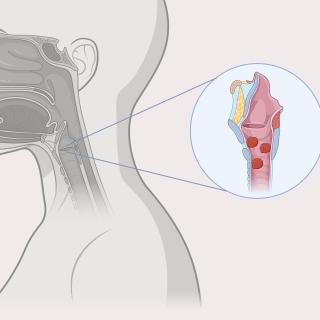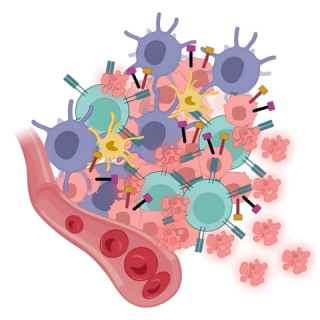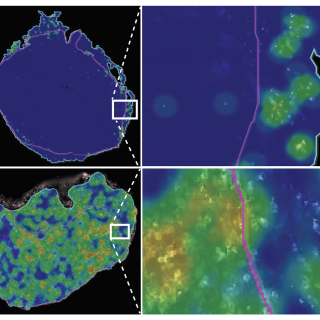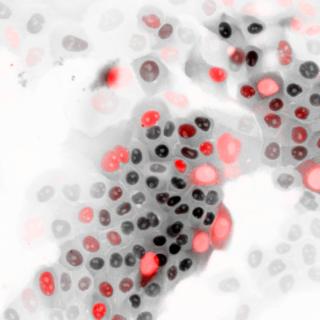News and Events
Proteins Released from the Nuclei of Dying Cancer Cells Promote Tumor Growth
Material released from dying cancer cells, known as tumor cell nuclear expulsion products (TuNEPs), contains specific proteins that promote the growth of neighboring cancer cells. Targeting these proteins could lead to new treatments that hinder cancer spread and improve patient outcomes.
Read MoreCCR Research Leads to FDA Approval of First Immunotherapy for Recurrent Respiratory Papillomatosis
The U.S. Food and Drug Administration has granted full market approval for Papzimeos (zopapogene imadenovec-drba), a groundbreaking non-replicating adenoviral vector-based immunotherapy designed for adult patients with recurrent respiratory papillomatosis (RRP).
Read MoreProtein makes cancer cells easier to destroy with immunotherapy
A protein called GCN1 can trigger a stress response inside cancer cells and simultaneously help them hide from the immune system. Research found these processes can be blocked by another protein called IMPACT, which could enhance immunotherapy’s ability to find and kill cancer cells.
Read MoreClinical trial researching immunotherapy for head and neck cancer
A clinical trial led by Charalampos Floudas, M.D., D.M.Sc., M.S., Associate Research Physician in the Center for Immuno-Oncology, is researching a combination immunotherapy for adults with head and neck squamous cell carcinoma.
Read MoreThree CCR researchers appointed as Senior Investigators
The CCR community congratulates Peng Jiang, Ph.D., Nirali N. Shah, M.D., M.H.Sc., and Ping Zhang, Ph.D., for recently being appointed as Senior Investigators in their respective labs and branches.
Read MoreClinical trial researching CAR T-cell therapy for rhabdomyosarcoma
A clinical trial led by Srivandana Akshintala, M.B.B.S., M.P.H., Assistant Research Physician in the Pediatric Oncology Branch, is researching CAR T-cell therapy for children and young adults with rhabdomyosarcoma.
Read MoreCelebrating CCR Careers: Stefan Ambs, Ph.D., M.P.H.
Stefan Ambs, Ph.D., M.P.H., is a molecular epidemiologist whose expertise is in prostate and breast cancer with a focus on cancer health disparities and risk factors that alter the tumor microenvironment. After almost 25 years at the NCI, he retired in May 2025.
Read MoreClinical trial researching drug therapy for solid tumors
A clinical trial led by Hoyoung M. Maeng, M.D., Associate Research Physician in the Center for Immuno-Oncology, is researching a drug therapy for adults with advanced solid tumors.
Read MorePatient Testimonials
Read testimonials from patients and their families about their time at CCR.
Read MoreActivated gene elicits robust immune response in lung cancer
The activation of NOTCH1, a gene known to control cell differentiation and growth, stimulates a robust immune response in small cell lung cancer. Expression of this gene can also predict survival with immunotherapy.
Read MoreStudy uncovers new details on pulsing enzyme activity during cell cycle
Enzymatic activity during the start of the cell cycle could be harnessed to inhibit cancer cell reproduction.
Read More









